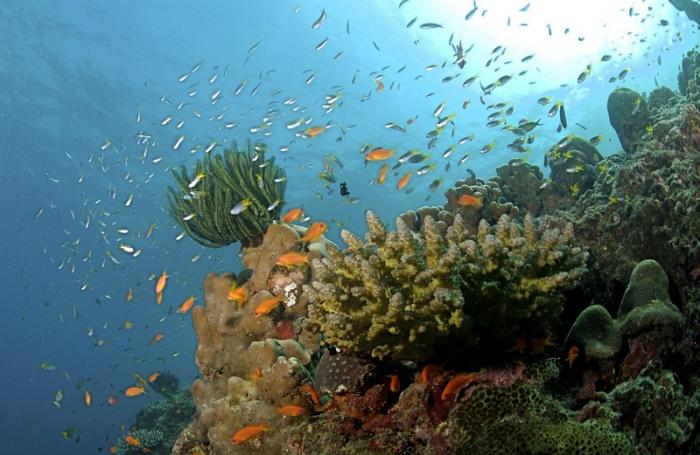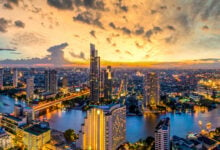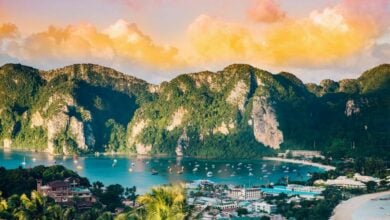Keep it Green: Mending our ways to save marine life

PHUKET: One could go on ad nauseam about the destruction of Phuket’s marine environment.
Consider eutrofication, the remorseless process whereby the continental shelf surrounding our emerald isle is laced with chemicals from fertilizer and waste resulting in the growth of algae, and water so depleted of oxygen that few fish will tolerate it. Worse, the cement-laced sediment from land development which has, for example, destroyed 250 rai of coral reef off Cape Panwa, or much larger areas of coral reef skirting Tang Khen beach. Add to that the impact of over-fishing, especially by trawlers and their dragnets, which not only continue to deplete near-exhausted fish stocks, but vacuum up everything else from the sea bed. A recent decree to forbid the use of gill nets with a mesh of less than four centimeters has predictably been overturned.
On land, the proliferation of high density apartments in Phuket has massively increased the amount of untreated wastewaster entering our once pristine seas, as well as destroying huge numbers of trees. Their roots prevented most of this run-off from entering the Andaman Sea, as well as breathing life-enhancing oxygen into our atmosphere. Shrimp farms discharge their contaminated water into the adjacent ocean; the obsession with plastic packaging has led to a dump the size of Texas in the Pacific and the likely demise of leatherback turtles who mistake plastic bags for jellyfish.
One might say all of this is inevitable. After all, Phuket is one of the world’s top tourist destinations. To most eyes, golden beaches look more appealing than mangrove forests. But these areas of western Phuket, cleared years ago for coastal development, have largely been created at their expense. Home to 230 species, mangrove swamps are not only nurseries for fish, but offer a bio- diversity utterly unique in the marine world.
Seagrass meadows are almost as important. Home to numerous benthic organisms and essential for fragile marine ecosystems, such as bottom dwelling crustaceans and worms, 149 varieties of fish rely on their existence. So do green sea turtles and dugongs, a distinctive sea-dwelling mammal now so rare than its numbers in the Andaman Sea are estimated to be no more than 150. They are dying, like turtles, not just from speedboat propellers, but from lack of food.
Of course, and as any yachtsman can testify, the island is still, as least in visual terms, an enchanting paradise that boasts some of the most spectacular marine scenery anywhere in the world. Phang Nga National Park, which enjoys some protection, has magnificent limestone islands or karsts, which feature towering cliffs, pristine beaches and lush canopies of tropical evergreen forest. The tidal channels run through vast mangrove swamps, the largest remaining concentration in Thailand. And the list of marine inhabitants is still impressive: Bengal and water monitor lizards, banded sea snakes and an avian population that includes swiftlets, helmeted hornbills, ospreys and sea eagles. The mangrove forests are home to more than 200 species of mammal including crab-eating macaques, white-handed gibbons and dusky langurs. A cornucopia of riches.
Much of the island is fringed by golden beaches and rocky promontories. Indeed, Nai Harn, with its stately casuarinas pines, is regularly voted as one of the world’s top tourist destinations. Many of the island’s northern beaches Nai Yang, Mai Khao and Naithon not only boast world-class resorts such as Indigo Pearl and Trisara, but are part of Sirinath National Park, 22 kilometers of protected coast plus 68 sqkm of sea. Bang Tao beach is a majestic expanse of sand dunes fully 8km long.
The Andaman Sea still looks magnificent, an azure ocean dotted with lush green islands. There are still 280 varieties of fish in these waters. Whether you travel by longtail boat or under sail, you will be captivated by the beauty of this sceptered isle and its ocean setting.
But just remember that it won’t be around for long – unless we mend our ways.
— Patrick Campbell
Leave a Reply
You must be logged in to post a comment.








